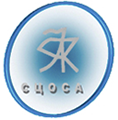
Standards Integration in E-Learning, Simulations, and Technical Manuals
Publication Type:
Journal ArticleSource:
Information & Security: An International Journal, Volume 14, p.71-80 (2004)Keywords:
advanced distributed learning, High Level Architecture, Interactive Electronic Technical Manuals (IETMs), S1000D, SCORM, SCORM-conformance, technical manualsAbstract:
Individually, three standards—the Sharable Content Object Reference Model (SCORM), the High Level Architecture (HLA), and S1000D—provide vital standardization to their respective areas of coverage. The SCORM provides standardization to e-learning content, HLA provides standardization to simulations, and S1000D to Interactive Electronic Technical Manuals (IETMs). Talks and Memorandums of Understanding (MOUs) are under way among the various groups responsible for these standards to find areas of overlap that might make good candidates for collaboration. For instance, recent collaboration between the Advanced Distributed Learning initiative (ADL) and the Defense Modeling and Simulation Office (DMSO) focused on finding ways to use the SCORM data model to assess and record performance within an HLA-based simulation. Similarly, ongoing research between ADL and the European Association of Aerospace Industries (AECMA) recently looked at ways to integrate SCORM-conformant training material into S1000D-based IETMs.
Beyond MOUs and general research and talks about collaboration, the standards bodies involved should consider undertaking collaborative projects that target actual operations and training needs. Solving real-world problems based on end-user needs and input can help illuminate portions of each standard that are the strongest candidates for joint and collaborative coverage.
- 11880 reads
- Google Scholar
- DOI
- RTF
- EndNote XML






